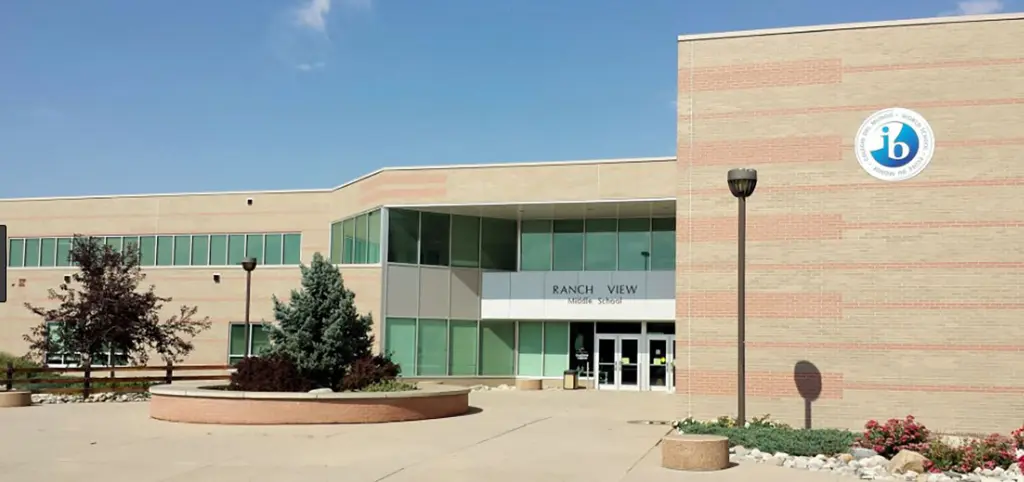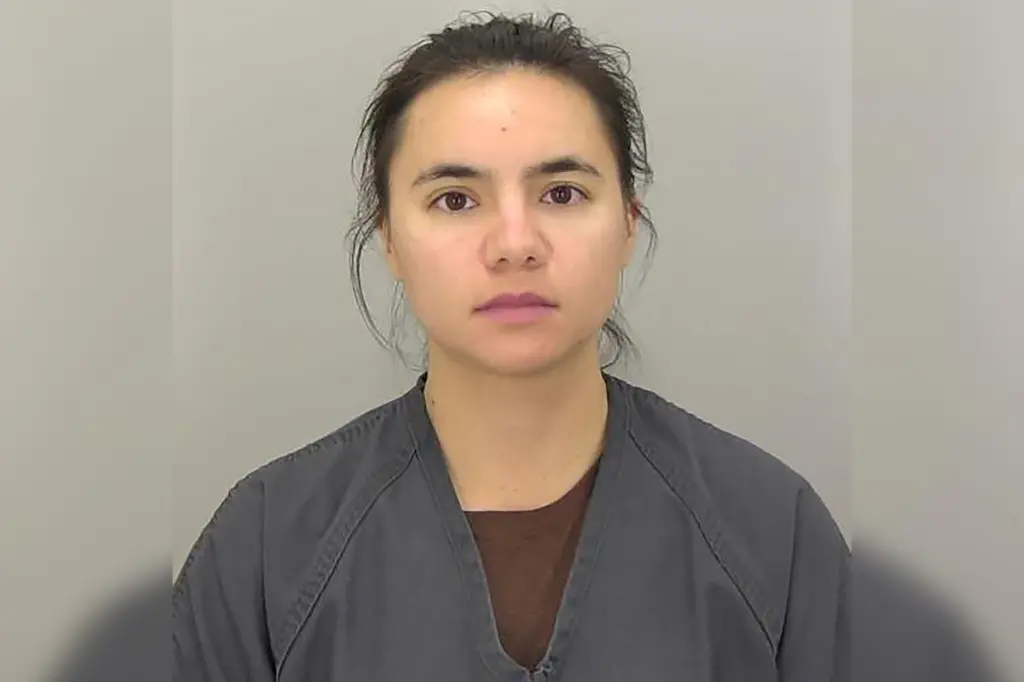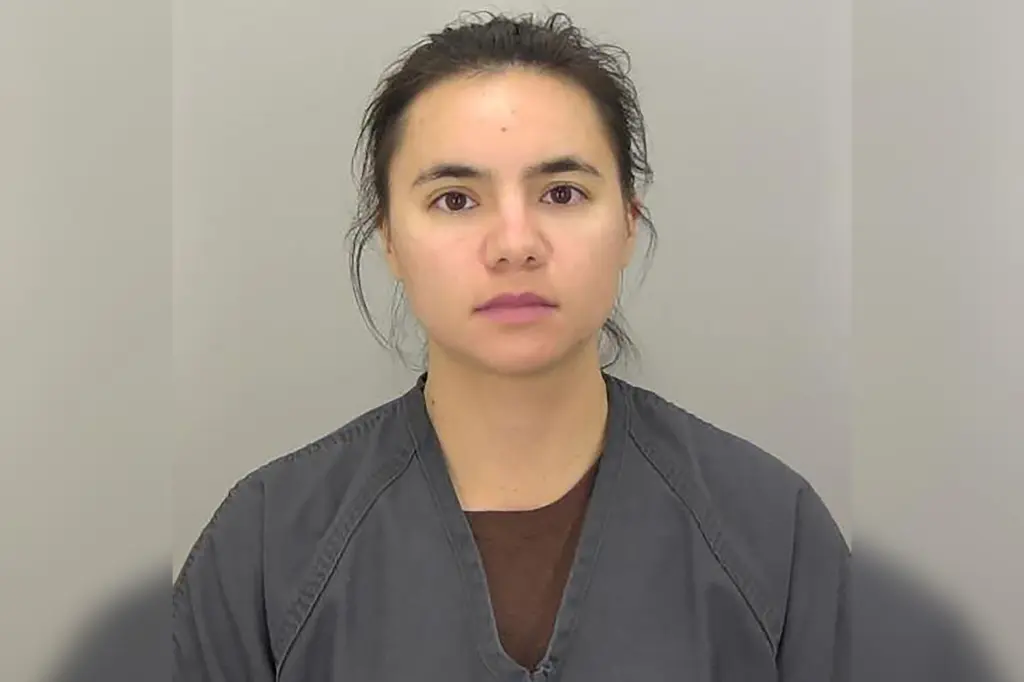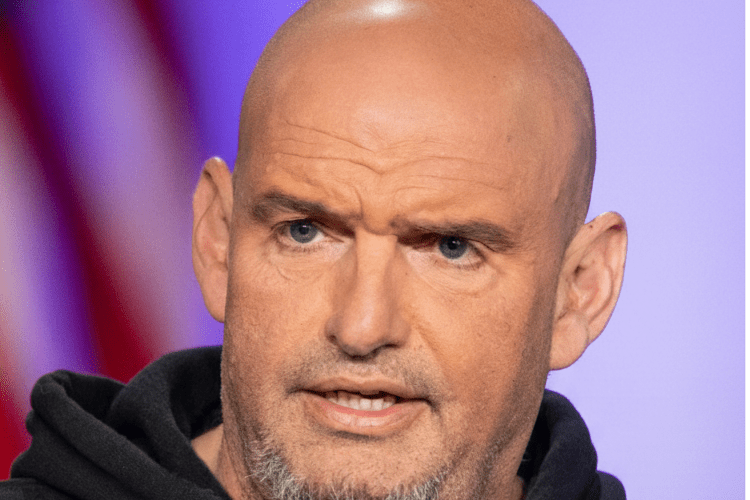Heartbreaking Confession: How a Trusted Educator’s Forbidden Romance with a Teen Spiraled into Obsessive Pursuit After He Walked Away
In the quiet suburbs of Highlands Ranch, Colorado, where families send their children off to school each morning with the comforting belief that teachers are the steady guardians of young minds, a story has emerged that shatters that illusion in the most heartbreaking way. It’s a tale of misplaced trust, hidden vulnerabilities, and a descent into obsession that has left an entire community reeling. At its center is Teresa Whalin, a 28-year-old integrated wellness teacher at Ranch View Middle School, whose alleged actions have transformed her from a familiar face in the hallways to the subject of a chilling criminal investigation. Arrested on November 10, 2025, Whalin now faces charges of sexual assault on a child by one in a position of trust, internet exploitation of a child, and stalking—accusations that paint a picture of a relationship that began under the guise of support and spiraled into something profoundly damaging.

The Douglas County Sheriff’s Office, in a statement released on November 12, described the arrest as the result of a swift investigation sparked by a courageous disclosure from the victim himself. Whalin, who had joined the Douglas County School District in July 2021 and was teaching health and wellness classes at Ranch View, a modern middle school nestled amid the rolling landscapes of suburban Denver, was taken into custody at her home in Centennial. She is currently being held at the Douglas County Detention Facility on a $50,000 bond, her once-ordinary life upended in an instant. The school district, acting with the urgency the situation demanded, placed her on administrative leave immediately, and Principal Erin Kyllo communicated directly with families in a letter sent on November 12, assuring parents that the administrative team would step in to support students while a long-term substitute is found. “We are working closely with law enforcement and are committed to the safety and well-being of our students,” the letter read, a small anchor of reassurance in a storm of uncertainty.
To understand how this unravelled, one must step back to April 2023, when the seeds of this tragedy were sown. The student, a boy then around 14 years old—12 years Whalin’s junior— was navigating the turbulent waters of early adolescence in a place where wellness classes are meant to equip kids with tools for emotional and physical health. According to the arrest affidavit reviewed by investigators and detailed in reports from local outlets like Denver7 and The Denver Post, the boy was grappling with profound mental health challenges. He had been engaging in self-harm, a silent cry for help that too often goes unnoticed amid the chaos of middle school life. In his vulnerability, he turned to Whalin, his teacher, seeking the kind of guidance she was professionally bound to provide. What began as innocent conversations in her classroom, discussions perhaps intended to foster resilience and self-care, allegedly veered into territory that no educator should ever cross.
The boy confided in Whalin about his struggles, sharing details of his pain and isolation. Rather than escalating the matter to counselors or safeguarding protocols as required, Whalin drew him closer, according to the affidavit’s account. Their interactions evolved from supportive chats to something far more personal. The student described it to investigators as “dating,” a word that carries an innocence in the mouth of a teenager but reveals a devastating power imbalance when uttered in the context of a classroom. Over the next 14 months, from spring 2023 through early 2025, the two allegedly shared meals at local spots, lingered in her office after hours, and exchanged messages on Snapchat that grew increasingly intimate. Whalin, leveraging her position, began driving the boy to and from school, pulling up not at his doorstep but around the corner to evade notice from his parents, who remained completely unaware of the rides or the deepening bond. This secrecy, woven into the fabric of their routine, allowed the relationship to flourish unchecked, a hidden thread pulling at the edges of the boy’s fragile sense of self.

As the months wore on, the nature of their connection allegedly crossed into explicit territory. The affidavit details exchanges of nude photos via Snapchat, acts that fall squarely under the charge of internet exploitation of a child. These weren’t fleeting lapses but part of a pattern, investigators say, where Whalin, as the adult in authority, initiated and sustained boundaries that should have been sacrosanct. The sexual encounters, which the boy later recounted to authorities, reportedly took place in settings that blurred the lines between school sanctuary and private betrayal—her classroom, the locker room, even her home. For a 14-year-old already wrestling with self-inflicted wounds and the weight of unspoken turmoil, these moments must have felt like a confusing mix of validation and entrapment, a teacher’s attention twisted into something that promised closeness but delivered isolation. Whalin’s role as an integrated wellness teacher, focused on teaching topics like mental health and healthy relationships, makes the alleged betrayal all the more poignant. She was there to model boundaries, not erode them; to empower students against exploitation, not become its source.
By summer 2025, as the boy entered a new phase of growth, cracks began to appear in this illicit arrangement. He started to pull away, his interests shifting toward peers his own age—a natural evolution that any adolescent might experience. According to the affidavit, he expressed a desire to date a classmate, a tentative step toward normalcy that should have been celebrated. Instead, it ignited a response from Whalin that turned their story from one of hidden indiscretion to outright peril. The breakup, as the student described it, was not met with graceful acceptance but with a struggle that manifested in alarming ways. Whalin allegedly couldn’t let go, her attachment morphing into something possessive and frightening. She began driving near the boy’s home, lingering along his walking path to and from school, her presence no longer a comfort but a shadow that instilled fear. One instance in August 2025 stood out particularly starkly: the boy spotted her car idling nearby, a familiar vehicle now synonymous with unease. He became convinced he was being watched, his hard-won sense of safety eroded by what felt like relentless surveillance.
The stalking didn’t stop at chance encounters. In a move that chilled investigators, Whalin reportedly created fake phone numbers to anonymously call and text the boy, probing for glimpses into his new life, her jealousy over his budding relationship with the classmate fueling a cycle of intrusion. These actions, pieced together from the boy’s fearful reports and digital trails, escalated the charges against her to include repeated stalking, a felony that underscores the ongoing threat she allegedly posed. For the boy, who had already carried the burden of self-harm and secrecy, this phase brought a fresh wave of anxiety. He confided in friends, who urged him to speak up, but it was the weight of it all—the past intimacy now poisoned by pursuit—that finally propelled him to action. On November 10, 2025, in a moment of raw vulnerability that speaks volumes about his resilience, he sat down with a school counselor and unburdened himself. The words tumbled out: the rides, the messages, the encounters, the breakup, the cars circling his neighborhood. The counselor, trained to recognize the gravity of such disclosures, wasted no time notifying the Douglas County Sheriff’s Office Special Victims Unit.
Detectives moved with precision and empathy, their investigation unfolding over mere hours. They interviewed the boy, corroborating his account with Snapchat records, witness statements from peers who had noticed the odd dynamic, and even input from a reporter who had observed Whalin’s vehicle in suspicious proximity. Armed with this evidence, they approached Whalin at her Centennial residence that same afternoon. What followed was a confession that laid bare the depth of her awareness and regret, as documented in the affidavit. Seated with detectives, Whalin admitted to the full scope of the relationship—the 14 months of intimacy, the knowledge that the boy was a minor, the illegality of it all. “It was wrong,” she reportedly said, her voice carrying the weight of realization too late. She acknowledged creating the fake numbers, not just to contact him but to surveil him, admitting she drove by his home repeatedly “just to catch a glimpse.” In that admission, there was a flicker of the person she might have been—a woman grappling with her own unchecked emotions—but it did little to soften the impact on those she had harmed. Detectives, ever vigilant, pressed for more, asking if there were other potential victims, a question that hangs over the case like a somber reminder of the trust she held.
The arrest sent ripples through Ranch View Middle School, a campus of brick and glass that symbolizes stability in this affluent corner of Douglas County. Parents, many of whom had praised Whalin’s engaging lessons on wellness in past years, now exchanged hushed conversations in parking lots, their protective instincts flaring. “How could this happen here?” one mother told local reporters, her voice cracking with the betrayal felt by every family. The school, serving grades six through eight in a district known for its academic rigor, responded with transparency and resolve. Principal Kyllo’s letter to families emphasized counseling resources on site, urging students to lean on trusted adults. “This is a difficult time,” she wrote, “but we are here to support one another.” The Douglas County School District, cooperating fully with authorities, reiterated its zero-tolerance policy for misconduct, a stance that offers cold comfort but underscores the systemic checks now under scrutiny.
For the boy at the heart of this story, the path forward is fraught with both healing and hurdles. At 16 now, he has shown remarkable fortitude in coming forward, a decision that experts say can be lifesaving for survivors of educator misconduct. Mental health professionals, speaking generally to outlets like CBS Colorado, note that adolescents in such situations often internalize shame, delaying disclosure until the pain becomes unbearable. His self-harm, mentioned poignantly in the affidavit, adds layers to his journey—reminders that wellness education, when genuine, can be a beacon, but when corrupted, a deeper wound. Authorities have connected him with victim advocates, ensuring his voice guides the prosecution. The charges against Whalin carry severe penalties: sexual assault on a child by one in a position of trust is a class 3 felony in Colorado, punishable by up to 16 years in prison, while internet exploitation and stalking compound the legal weight. As the case moves through the courts, expected to see formal filings from the Denver District Attorney’s Office soon, it will test the justice system’s commitment to holding power accountable.
This incident, tragic as it is, casts a necessary light on broader issues plaguing schools nationwide. Reports from organizations like the National Center for Education Statistics highlight that educator-student boundary violations, while rare, inflict lasting trauma, eroding community trust and leaving young people to rebuild shattered self-worth. In Colorado alone, similar cases have surfaced in recent years, prompting districts to bolster training on grooming red flags and mandatory reporting. Ranch View’s response—swift leave, open communication—sets a model, but it also prompts uncomfortable questions: Were there earlier signs, overlooked in the bustle of daily teaching? Whalin’s background, prior to her 2021 hire, appears unremarkable on public record, with no prior flags in her certification history, according to state education department checks. Yet, in hindsight, the affidavit’s details of unreported self-harm raise alarms about intervention gaps. Wellness teachers, uniquely positioned to spot distress, bear an extra duty to channel it toward professional help, not personal entanglement.
As November’s chill settles over Highlands Ranch, the neighborhood streets where Whalin once drove feel irrevocably altered. Families walk their kids to school with a sharper eye, counselors’ doors stand a little more ajar, and the boy, somewhere in the quiet of his home, begins the slow work of reclaiming his story. His bravery in speaking out isn’t just a personal victory; it’s a catalyst for vigilance, a reminder that the adults we entrust with our children’s futures must earn that sacred role every day. For Whalin, the woman who once stood before a classroom promising health and harmony, the road ahead is one of accountability, where words of confession must yield to consequences. Detectives continue to seek tips from anyone who might have witnessed troubling patterns—emails to Detective Clay at the sheriff’s office invite those shadows into the light. In the end, this isn’t merely a scandal; it’s a human unraveling, a call to protect the vulnerable with the fierceness they deserve. And in the halls of Ranch View, where laughter and learning persist despite the scar, there’s a quiet resolve: to rebuild, to watch closer, to ensure no child walks alone.



